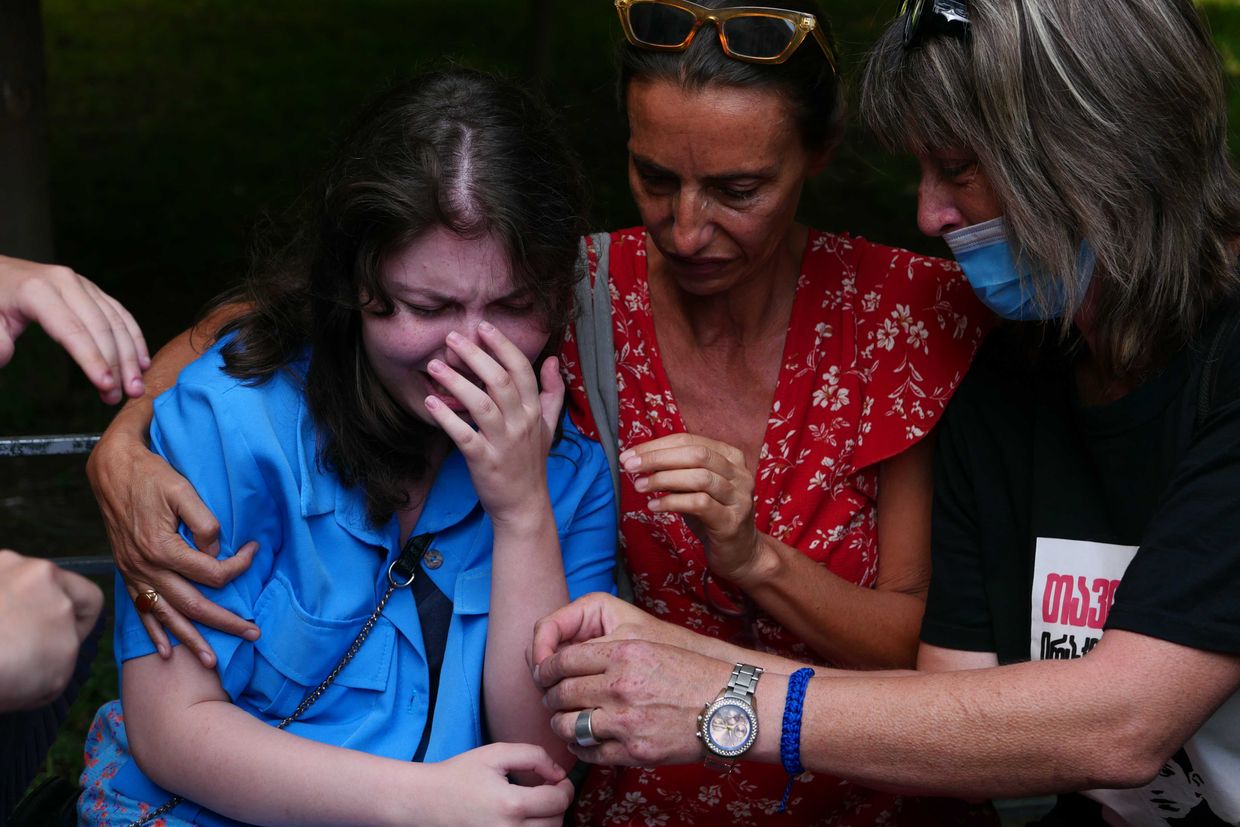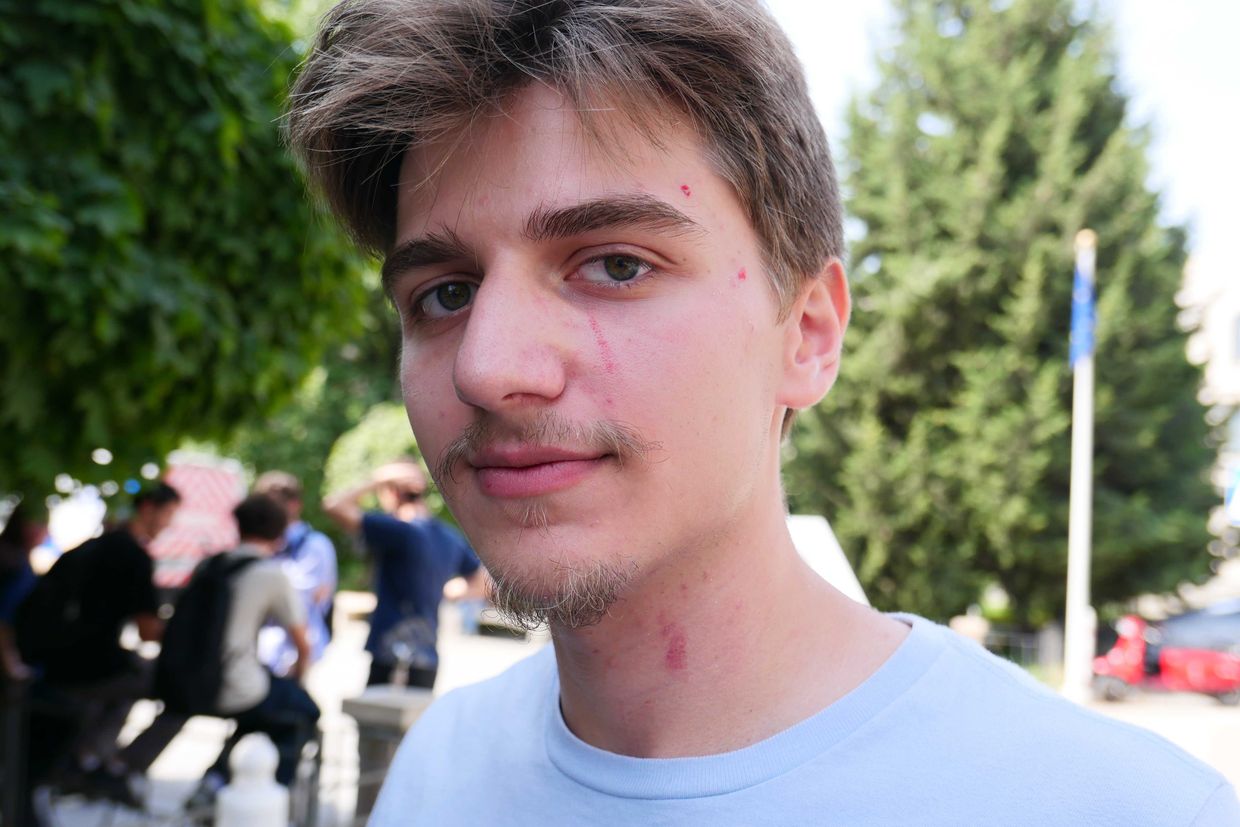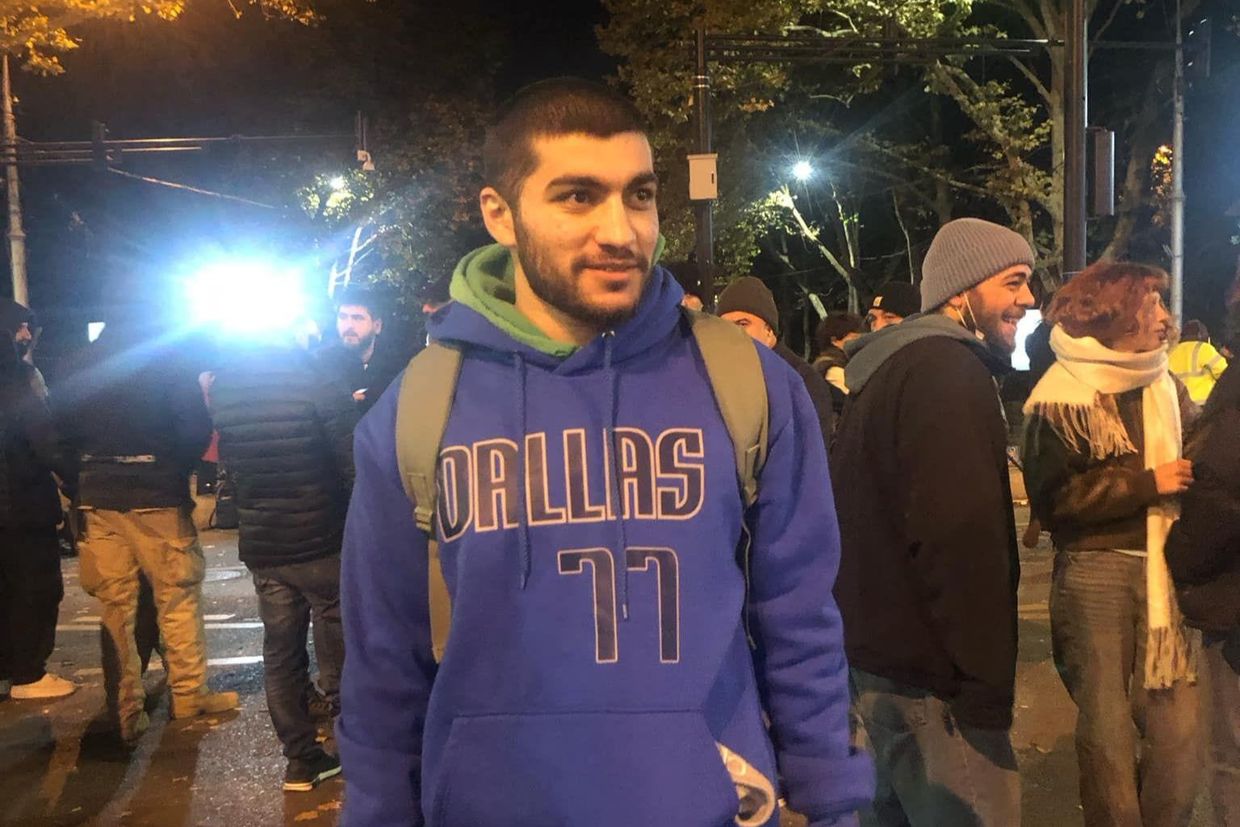Russian detained during Georgia’s EU U-turn protests sentenced to 8.5 years on ‘drug charges’

Russian citizen Anton Chechin, who was detained in the early phase of anti-government protests in Tbilisi, has been sentenced to 8.5 years in prison on drug charges. Chechin, who actively participated in the demonstrations, had attributed his arrest to political intimidation.
The verdict for 26-year-old Chechin was announced on Tuesday by Judge Jvebe Nachkebia, prompting emotional reactions from his supporters. His wife, Manana Samkharadze, was in tears.

After the hearing, court bailiffs forcibly removed the prisoner’s supporters from the building. One individual, with scratches on his face and neck, said that he had been assaulted by the head of the bailiffs, Davit Matiashvili.
Chechin is one of those six demonstrators who faced charges not related to the rallies, but of illegal possession of drugs. However, their cases have been widely perceived by critics as being politically motivated.
The detention of Chechin occured on 4 December 2024, one week after the ruling Georgian Dream party suspended the country’s EU membership bid and the subsequent protests began. He said that plainclothes officers held him while he was on the way from home to work.
Chechin and his lawyer Giorgi Chkheidze said that the police planted drugs on him during his initial detention. The lawyer stated that, in order to prevent the incident from being caught on a street camera or witnessed by passersby, Chechin was put into a car, where the search was carried out.

‘My detention can be called political lawlessness. The actions of the police were illegal. They pulled drugs out of my pocket that I had never seen before. The police used force that was unnecessary, meant only to humiliate and intimidate me’, he said during Tuesday’s hearing, as quoted by Netgazeti.
‘For nine months, I couldn’t find a way to prove my innocence. I do not rule out the possibility that pressure on our persecution came from Russia’, he added.
Police did not present any video of Chechin’s search and arrest. According to RFE/RL, authorities claimed that filming was not possible due to the detainee’s resistance — a claim the defense lawyer disputed, saying his client had offered no resistance.
A translator, who was present during the search to facilitate communication between the police and the defendant, was presented in the case as a neutral witness by the prosecutor. However, the defense questioned her credibility, arguing that an interpreter brought in by the law enforcement officials themselves could not be considered an impartial witness.
As in the cases of several other detainees, Chechin’s case also included allegations of degrading treatment by police. As his lawyer stated, the 26-year-old man was slapped twice in the face with his own transportation card and struck on the back of the head.
From Siberia to Tbilisi prison
Chechin is originally from Barnaul, a small city in Siberia. He left in 2022 and came to Georgia due to the risk of reprisals in Russia over his political activities.
In his closing statement, Chechin’s lawyer said that since 2017 he had been assisting the party of the late opposition politician Aleksei Navalny. He also took part in protest rallies, including demonstrations against Russia’s full-scale war in Ukraine.
Following the anti-war protests, he moved to Tbilisi, where he continued his work at the Emigration for Action, an NGO providing support for Ukrainians affected by the war. It was after relocating to Georgia that he met his wife, whom he married in 2023.
After arriving in Georgia, Chechin joined protests against the Georgian Dream government, including demonstrations against the controversial foreign agents laws.
According to Chechin, before his detention he had repeatedly been subjected to pressure, with police searching him several times a month. In June 2024, during protests against the disputed law, he was fined for allegedly disobeying police orders.
During court hearings, he placed special emphasis on the events of 18 November 2024, when protests were underway in Tbilisi following the disputed October parliamentary elections. Chechin said that on that day, plainclothes police officers were taking photos of him, and in response, he began filming as well. According to him, they then put him in a car, threatened him with a beating and arrest unless he deleted the photos.
Chechin has a health issue, specifically a cystic-fibrous formation in his brain, as indicated by his MRI results. A neurosurgeon, who was questioned at the court hearing on August 6, stated that the prisoner required surgery.
Other Russian nationals in Georgian prisons
The latest wave of protests in Georgia began on 28 November, when Georgian Dream announced the suspension of the country’s EU membership bid. The first phase of demonstrations saw heavy clashes and brutal police violence against protesters and journalists.
Hundreds of people have been detained, with criminal cases launched in over 50 instances. Several protesters have already been convicted and sentenced to years in prison.
So far, only two protesters have been acquitted and released by the court: Tedo Abramov and Giorgi Akhobadze, who were also charged with drug-related offenses. The judges cited a lack of sufficient evidence as the reason for their acquittal.
Three other protesters charged with drug offences are still awaiting verdicts. Among them are Nika Katsia, Anastasia Zinovkina, and Artem Gribul. Zinovkina and Gribul, Russian citizens like Chechin, were detained in December. They also denied the charges and linked their arrests to participation in the protests.











